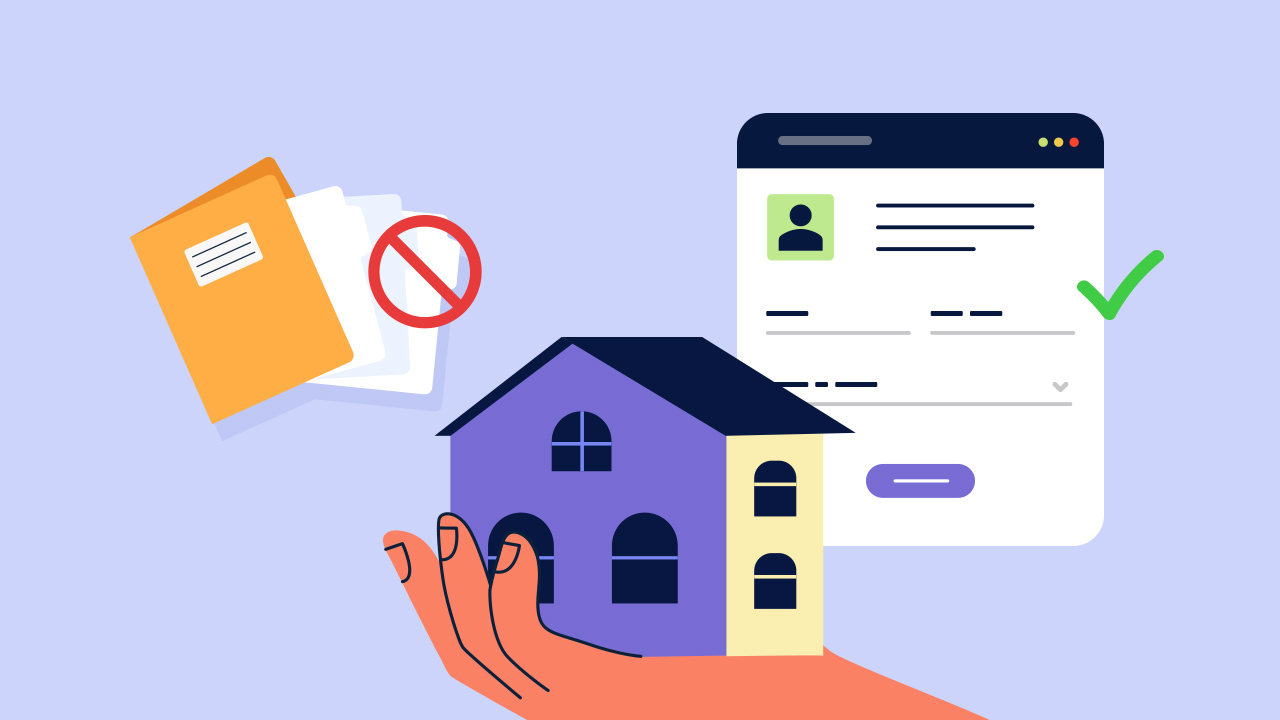
Is real estate your bread and butter or something you’re interested in investing in? If yes, well you found the right article.
The real estate world is very dynamic and complex, risks abound at every turn. Whether you’re a buyer, seller, investor, or agent, navigating these risks is essential for success. Traditional paper-based processes have long been the standard in the industry, but they come with their challenges, including inefficiency, errors, and susceptibility to loss or damage.
However, with the advent of digital forms, the landscape is now rapidly changing, thankfully! These innovative tools offer a streamlined and secure way to manage transactions, documentation, and communication in the real estate industry. In this blog, we’ll explore how leveraging digital forms can help in mitigating real estate risks across various aspects of transactions.
From initial property assessments to closing deals, digital forms offer numerous benefits that enhance transparency, accuracy, and compliance. We’ll examine how digital forms facilitate due diligence processes, streamline communication between parties, and ensure data integrity throughout the transaction lifecycle.
Join us as we delve into digital forms and discover how they are revolutionizing risk management in real estate, empowering professionals to make informed decisions with confidence and security.
In this blog, we’ll explore:
1. What are the common real estate risks?
2. How can digital form help in mitigating real estate risks?
3. Mitigate real estate risks with PlatoForms digital forms
What are the common real estate risks?

Before diving into how digital forms can help mitigate real estate risks, let’s identify the common real estate risks first. Understanding and managing these real estate risks is essential for investors and stakeholders like you to make informed decisions and mitigate potential losses.
Market Risk
Fluctuations in the real estate market can affect property values. When there are economic downturns, changes in interest rates, and shifts in supply and demand can all impact property values.
Location Risk
The desirability and value of a real estate property heavily depend on its location. Its value is affected by factors such as neighborhood quality, proximity to amenities, crime rates, and employment opportunities can affect property values.
Liquidity Risk
Real estate investments are typically less liquid than other assets. One of the risks you can face while selling a property is that it takes time because there’s no guarantee that a buyer will be found quickly, especially in a slow market.
Tenant Risk
If you’re into rental properties, there’s always a risk involved. For instance, you might struggle to find reliable tenants who pay rent on time and take care of your property. Imagine dealing with tenants who constantly pay late or cause damage to your property. These issues not only affect your cash flow but also add to your expenses for repairs and maintenance. In worst-case scenarios, you may even face the daunting prospect of eviction proceedings.
Operational Risk
Running a property involves dealing with many operational risks. For example, you have to budget for maintenance and repairs, pay insurance premiums, handle property taxes, and make sure you comply with regulations.
Interest Rate Risk
Changes in interest rates can also affect financing costs for your real estate investments. Higher interest rates can increase borrowing costs, impacting property affordability and investment returns.
Environmental Risk
One of the real estate risks you can face are environmental hazards such as pollution, contamination, or natural disasters. These hazards can affect property value and pose liabilities for property owners.
Legal and Regulatory Risk
Real estate investments are subject to various laws and regulations at the local, state, and federal levels. You should take note that changes in zoning laws, land use regulations, or tax policies can impact property value and investment returns.
Construction and Development Risk
Real estate development projects come with their own set of risks. You need to be prepared for things like delays in construction, unexpected increases in costs, problems with permits, and shifts in market demand.
Financial Risk
Leveraging or borrowing money to finance your real estate investment, can amplify returns but also increase financial risk. If the property value declines or rental income decreases, you and other investors may struggle to meet debt obligations.
Marketability Risk
There are times when properties may be difficult to sell or lease due to factors such as unique design features, functional obsolescence, or lack of demand in the market, so you also watch out for it.
Macroeconomic Risk
Factors such as inflation, economic recession, or geopolitical instability can affect overall economic conditions, which in turn impact real estate markets and investment performance.
How can digital form help in mitigating real estate risks?

Now that you’re aware of the real estate risks you should watch out for in the industry, we can talk about how digital forms can help mitigate them.
Efficient Data Collection
Digital forms enable efficient data collection related to property transactions, tenant information, maintenance requests, and other relevant aspects of real estate management. This enables stakeholders to gather comprehensive information quickly and accurately, reducing the likelihood of errors or omissions.
Digital forms are also a gateway to real estate paperless data collection.
Risk Assessment and Due Diligence
To mitigate the risk, you have to assess it. Good thing digital forms can also aid with that!
Digital forms play a crucial role in simplifying risk assessment and due diligence processes in property transactions such as acquisitions or lease agreements. These forms are customizable, allowing stakeholders to tailor them to capture specific risk factors relevant to each transaction. By utilizing digital forms, stakeholders can efficiently identify and evaluate potential risks associated with the property, aiding in more effective decision-making.
Standardization and Compliance
Another way to use digital forms to mitigate real estate risks is by using them for standardization and compliance. You can standardize digital forms to ensure compliance with regulatory requirements and industry standards.
By incorporating built-in validation checks and predefined fields, digital forms help ensure that all necessary information is captured correctly and consistently.
Document Management
When you need to manage your documents online, digital forms are the best option. You can streamline document management by centralizing all relevant paperwork in a digital format.
With this, you can easily access, share, and track important documents such as contracts, leases, property records, and compliance certificates, reducing the risk of misplaced or lost paperwork. You can even access them wherever you are! (This is perfect, especially when there’s an urgent concern with the papers.)
Workflow Automation
You can also integrate digital forms into workflow automation systems to automate routine tasks and processes, such as lease approvals, maintenance requests, and rent collection. By automating these repetitive tasks, digital forms help reduce human error and ensure the timely execution of critical activities, minimizing operational risks.
Enhanced Communication
In any industry and organization, communication is an important factor; and digital forms can help you with that! Digital forms facilitate seamless communication between stakeholders, allowing real-time collaboration and feedback.
Digital forms’ notification features can alert relevant parties to important updates or pending actions, improving transparency and accountability across the real estate ecosystem. You can even add a language translation to your forms which makes it easier to communicate with other stakeholders.
Data Analysis and Reporting
Digital forms are also a great tool to generate valuable data that can be analyzed to identify trends, patterns, and potential areas of risk. By leveraging analytics tools, stakeholders can gain insights into key performance metrics, tenant behavior, market trends, and property performance, enabling informed decision-making and proactive risk management.
Mitigate real estate risks with PlatoForms digital forms
Mitigating risks is a challenging task indeed, but with the right tools and channels, you and your team can surely nail it!
Are you searching for the perfect digital tool to streamline your real estate tasks? Look no further than PlatoForms! With PlatoForms, you can effortlessly create professional and user-friendly forms tailored to your real estate needs. Our platform allows you to customize your forms with ease—add fields, tweak images, and adjust font styles to your liking. Best of all, you don’t need any coding experience to get started!




